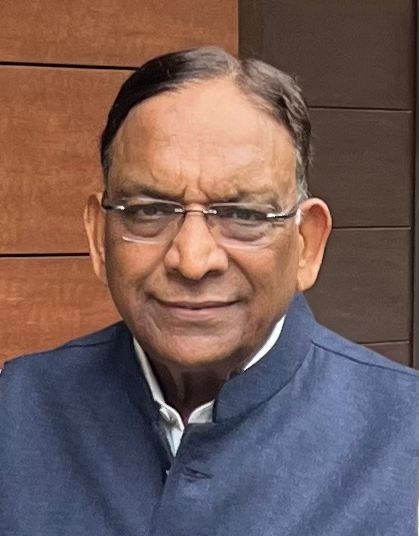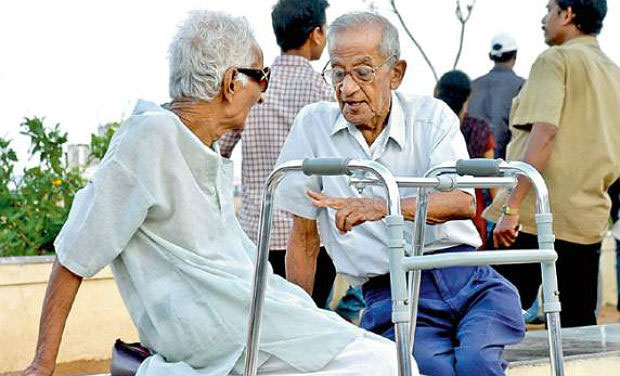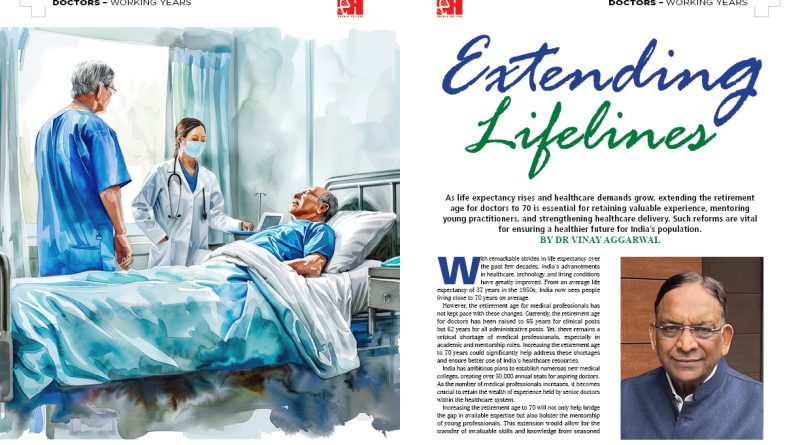Extending Lifelines
 As life expectancy rises and healthcare demands grow, extending the retirement age for doctors to 70 is essential for retaining valuable experience, mentoring young practitioners, and strengthening healthcare delivery. Such reforms are vital for ensuring a healthier future for India’s population.
As life expectancy rises and healthcare demands grow, extending the retirement age for doctors to 70 is essential for retaining valuable experience, mentoring young practitioners, and strengthening healthcare delivery. Such reforms are vital for ensuring a healthier future for India’s population.
By Dr Vinay Aggarwal
With remarkable strides in life expectancy over the past few decades, India’s advancements in healthcare, technology, and living conditions have greatly improved. From an average life expectancy of 37 years in the 1950s, India now sees people living close to 70 years on average.
However, the retirement age for medical professionals has not kept pace with these changes. Currently, the retirement age for doctors has been raised to 65 years for clinical posts
but 62 years for all administrative posts. Yet, there remains a critical shortage of medical professionals, especially in academic and mentorship roles. Increasing the retirement age to 70 years could significantly help address these shortages and ensure better use of India’s healthcare resources.
India has ambitious plans to establish numerous new medical colleges, creating over 50,000 annual seats for aspiring doctors. As the number of medical professionals increases, it becomes crucial to retain the wealth of experience held by senior doctors within the healthcare system.
Increasing the retirement age to 70 will not only help bridge the gap in available expertise but also bolster the mentorship of young professionals. This extension would allow for the transfer of invaluable skills and knowledge from seasoned doctors to the next generation, strengthening India’s medical workforce for years to come.
Maximising the Potential of Experienced Doctors
The extension of doctors’ careers until 70 is more than just a policy change—it’s a strategic move to reinforce the healthcare system. The wealth of experience that senior doctors bring in diagnosing, treating, and managing complex conditions is invaluable. By allowing them to continue practicing until 70, India’s healthcare system can continue to benefit from their deep clinical expertise, particularly in critical or rare medical cases.
Closing the Gap in Medical Teaching and Mentorship
Senior doctors are essential in mentoring and guiding the next generation of healthcare professionals. By keeping experienced doctors in active service longer, younger practitioners can receive vital training and support, ensuring that high standards of medical care are maintained across the healthcare sector. This mentorship is critical in bridging the gap between academic learning and hands-on practice, particularly for those entering more specialised fields of medicine.
As India’s life expectancy increases, the healthcare system must adapt to the growing needs of its population. Raising the retirement age of doctors to 70 would not only address the shortage of skilled professionals but also ensure the mentorship of younger generations and the retention of valuable experience.
Addressing the Shortage of Skilled Medical Professionals
India continues to face a shortage of skilled medical professionals, especially in rural and underserved areas. Raising the retirement age would help alleviate this shortage by retaining experienced practitioners who are vital in providing care in these regions. As India’s healthcare needs grow, so too does the demand for professionals capable of delivering specialised care. Senior doctors are key to meeting this demand.

Ensuring Stability in Healthcare Administration and Policy-Making
Senior doctors often play significant roles in healthcare administration and policy formulation. Their expertise is essential in improving hospital management, shaping public health policies, and driving national healthcare initiatives. By extending their service, India can ensure that these experienced professionals continue to contribute to shaping a resilient and forward-looking healthcare system.
Optimising the Return on Investment in Medical Education
Medical education and training require immense investment, both in terms of resources and time. Allowing doctors to serve until 70 maximises the return on this investment by extending their period of productivity and contribution to the healthcare system. Every additional year of service ensures that the knowledge and skills acquired by doctors are fully utilised, benefiting the broader community.
Life Expectancy and the Retirement Age
When India first set its retirement age for doctors, the average life expectancy was much lower, and healthcare demands were simpler. In the 1950s and 1960s, a retirement age of 55 seemed reasonable, but with today’s increased life expectancy and more complex healthcare challenges, doctors’ responsibilities have expanded exponentially.

The retirement age for doctors in India has been gradually raised over the years. In the 1950s, it was set at 55, increasing to 58 in the 1970s and 60 in the 1990s. A major reform in 2017 raised the retirement age of central government doctors to 65 and 62 for administrative staff. However, India still needs a unified policy to address these inconsistencies across states and fully realise the potential of extending doctors’ working years.
India’s healthcare landscape is evolving rapidly, with ambitious plans for medical colleges and more practitioners entering the workforce. Extending the retirement age for doctors could help bridge the gap in medical expertise, enhance mentorship, and provide better healthcare across the nation.
Countries such as the United States and the United Kingdom have recognised the importance of retaining senior doctors and have raised the retirement age accordingly. In these nations, senior doctors mentor young practitioners, manage complex medical cases, and play crucial roles in research and healthcare policy. India must follow suit to meet its growing healthcare needs.
Takeaways
It is time for India to review the retirement age of its doctors. This change is not just about extending working years but about ensuring that the healthcare system benefits from the wealth of experience that senior doctors possess. In an era of increasing life expectancy and growing healthcare demands, retaining experienced doctors for longer is essential.
Extending the retirement age would improve healthcare delivery, optimise the return on investment in medical education, and help achieve the national goal of universal health coverage. Ensuring that senior doctors remain active in the workforce can build a more robust, resilient, and future-ready healthcare system.
(The author is Past National President of the Indian Medical Association and Recipient of the Dr BC Roy National Award)

